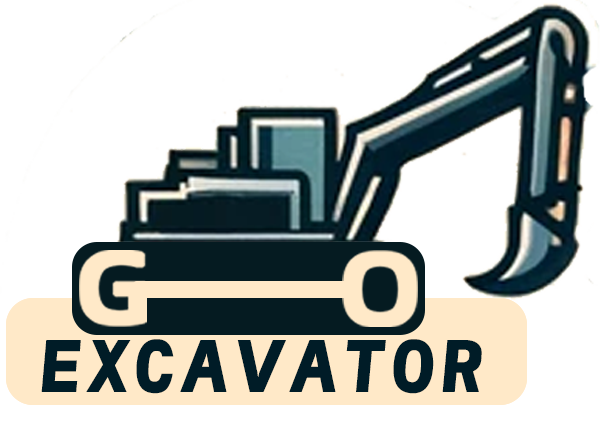
Choosing the right excavator is crucial for the efficiency and success of construction projects. This guide will walk you through the factors you need to consider to select the most suitable excavator model for your needs.
Understanding Excavator Types
1. Mini Excavators
Mini excavators are ideal for tight and confined spaces. They are perfect for smaller projects such as residential landscaping or minor demolition tasks. Their compact size enables them to operate in areas where larger machines cannot access.
2. Standard Excavators
Standard excavators are the most common type used in a variety of construction projects. They offer good balance in terms of power and size, making them suitable for tasks ranging from digging trenches to handling materials.
3. Large Excavators
Large excavators are designed for heavy-duty operations such as mining and large-scale construction projects. They are highly durable and can handle tough environments but require significant investment and operating space.
Key Features to Consider
1. Engine Power
The engine power of an excavator determines its capability to handle heavy loads and tough digging conditions. Higher horsepower is necessary for larger projects that involve heavy lifting and extensive earthmoving.
2. Operating Weight
The weight of the excavator affects its stability and digging force. Heavier machines provide more digging force but are less suitable for operations on soft or sensitive surfaces.
3. Bucket Capacity
Bucket capacity should match the scale of the project. Larger buckets can handle more material, reducing the number of cycles needed to complete a task, thereby improving efficiency.
4. Hydraulic System
The hydraulic system plays a crucial role in the performance of an excavator. Advanced hydraulics allow for smoother operation and better handling, especially in precision work.

Additional Considerations
1. Attachments and Versatility
Consider the range of attachments available for the excavator, such as breakers, rippers, or augers. A machine with a versatile attachment system can handle a variety of tasks, making it more cost-effective.
2. Cabin Comfort and Ergonomics
Operator comfort can greatly affect productivity. Look for models with comfortable seating, good visibility, easy-to-use controls, and adequate noise insulation.
3. Brand and After-sales Service
Choose a reputable brand that offers reliable after-sales service, including parts availability and repair services. Good support can significantly reduce downtime.
4. Environmental Considerations
Modern excavators often come with features that reduce environmental impact, such as low-emission engines and systems that decrease fuel consumption. Opting for environmentally friendly models can be beneficial, especially in urban areas with strict emission regulations.
How to Make the Final Decision
1. Assess Your Project Requirements
Analyze the scale, duration, and specific needs of your projects. This assessment will guide you in choosing the right type and size of excavator.
2. Compare Different Models and Brands
Once you have a clear idea of the type of excavator needed, compare models from different brands. Look at performance reviews, operational costs, and maintenance needs to find the best fit.
3. Consider Used or Rental Options
For short-term projects or limited budgets, consider renting or purchasing a used excavator. Ensure any used machine is thoroughly inspected and comes with a service history.
4. Test Drive
If possible, test the excavator under conditions similar to your typical projects. This can provide insight into the machine’s performance and suitability for your tasks.
Choosing the right excavator involves a thorough understanding of your project needs and the features of various excavator models. By carefully evaluating these factors, you can ensure that you select a model that will contribute to the efficiency and effectiveness of your construction projects.
A Comprehensive Guide to Buying a Excavator Second Hand
Purchasing a second-hand excavator can be a cost-effective solution for your construction or landscaping needs. However, buying used machinery comes with its own set of challenges and considerations. This comprehensive guide will walk you through [...]
Comprehensive Guide to Hyundai Mini Excavators: Features and Prices
Mini excavators have become indispensable tools in the construction and landscaping industries. Hyundai Construction Equipment, a global leader in heavy machinery, offers a range of mini excavators known for their reliability, efficiency, and advanced features. [...]
How to Extend the Service Life of Excavator Parts
Excavators are indispensable machines in the construction and mining industries. They perform heavy-duty tasks that demand robust components and meticulous maintenance. Extending the service life of excavator parts not only reduces operational costs but enhances [...]
Kymron Excavators: Innovative, Sustainable Construction Machinery
In the dynamic world of construction and heavy machinery, Kymron has emerged as a game-changer. Specializing in advanced excavator technology, Kymron is redefining industry standards with its commitment to innovation, efficiency, and sustainability. Company Overview [...]
Bulldozer vs. Wheeled Excavator: Which Machine is Better for Moving Soil?
Moving soil is a fundamental task in construction, landscaping, and earthmoving projects. Choosing the right machinery for the job can significantly impact efficiency, cost, and project timelines. Two of the most commonly used machines for [...]
Why Are Small Excavators Favored? A Comprehensive Guide
In the world of construction and landscaping, efficiency and versatility are key. Among the myriad of machinery available, small excavators have risen in popularity. But what makes them so favored? Introduction to Small Excavators Small [...]




